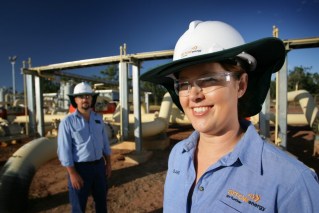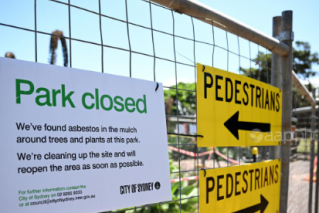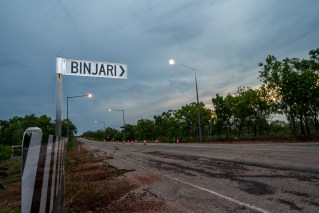Our other ‘boarder’ restrictions: Country schoolkids left in limbo
Another school term of COVID-19 restrictions for boarding students has stressed parents across rural and remote Queensland weighing up costly moves to coastal cities to support their children’s education.


Rural parents who send their children to boarding schools generally work to a shorter school year. (Photo: AAP Image/Darren England)
After almost eight weeks of supervising children at home via online lessons – struggling with patchy internet service and the strain on their farming or business operations – parents are now bracing for lengthy stays in city accommodation in a bid to reunite their children with their peers.
The planned exodus comes after students across the State returned to classes in stages from May 11 following weeks of coronavirus lockdown that saw lessons delivered online, turning thousands of parents into makeshift teacher aides for most of term 2.
While most Queensland students are now back in class, restrictions on boarders remain in place, with no sign yet from State health authorities that control measures on school dormitories will be lifted in time for the official start of term 3 on July 13.
With some boarding schools operating at vastly reduced capacity to accommodate social distancing within dormitories, prioritising senior students in Years 11-12, a Department of Education website has advised that years 7-10 students may be able to return from June 8, provided schools adapt their living arrangements in line with recommendations from the Australian Health Protection Principal Committee (AHPPC).
Mother of three teenage girls, Kellie Mitchell, told InQueensland if clarity on the restrictions wasn’t issued soon, she would be making the move from their property at Talwood near Goondiwindi to the Gold Coast.
“There’s been no indication yet that anything is going to change for term 3, so we see no other way than for me to move to the Gold Coast with the girls and regularly commute back to Talwood,” she said.
“It’s going to be very disruptive to say the least, but it’s important we get our girls back into a school environment and back with their friends in the interests of their mental health.”
Kathy Scholes, who has one year 8 child at The Southport School and another primary school-aged child at home who learns via Distance Education, told InQueensland she won’t be waiting on the State government to issue any rule change.
Living on a remote cattle property halfway between Blackall and Barcaldine, Scholes will be driving 12 hours to the Gold Coast this week, where she’ll remain for as long as her son attends TSS as a day student.
As parents try to adjust to arrangements that still remain unclear, moving children around the State over long distances means more time behind the wheel, especially with air travel heavily restricted.
The situation for children either living in vulnerable Indigenous communities or surrounding districts, declared as Pandemic Exclusion Zones, in areas such as Burketown or Doomadgee is even more problematic, with people moving outside the area still required to quarantine for 14 days before they can return home.
Premier Annastacia Palaszczuk said Aboriginal and Torres Strait Islander Partnerships Minister Craig Crawford was meeting with indigenous community mayors to resolve those challenges.
“We are trying to accelerate as quickly as possible the easing of those restrictions,” Palaszczuk told reporters in Townsville this week.
Mitchell and her husband Colin, who run a mixed farming enterprise about four hours inland from the coast, have already incurred significant costs since the start of the school lockdown, having replaced her role in the farm business with a fulltime worker while she attends to supervising the online classes.
Top-tier internet packages, to provide just enough data to cover their use for school and business, is costing $170 a day.
“Even with that top package we were still experiencing multiple drop-outs in connectivity through the day – it’s been pretty frustrating,” Mitchell said.
Mitchell said staying on the Gold Coast while her girls attend St Hilda’s at Southport as day students will cost $10,000 for the duration of term 3.
“Eight weeks is a long time to be living with three teenage girls. We need something fairly spacious so they have their own space to study. That’s going to be better for everyone’s mental health,” Mitchell said.
Mitchell said many families she knew with children at boarding schools on the Gold Coast, Brisbane or Toowoomba had already uprooted their lives and relocated due to the ongoing uncertainty.
She said there was also anger over why students living in boarding school accommodation were at greater risk of spreading Covid-19 than students interacting in classrooms and on school grounds during daytime hours.
“The restrictions on boarding are just absurd considering there are hundreds of students at these schools during the day, using all the facilities, and then going outside the school into the community and then back again the next day,” Mitchell said.
“To most people’s way of thinking, their kids who remain on school grounds within a contained environment such as a boarding school, would in fact be less of a risk than the day students.”
A Queensland Health spokesman said the tighter restrictions applied to boarding schools was based on medical advice that “boarding schools by their very nature increase the risk of transmission of disease”.
“Boarders sharing facilities such as bedrooms, bathrooms, dining areas and communal areas on an ongoing basis will be at higher risk of transmission of disease compared to their day-student colleagues,” the spokesman said.
Isolated Children’s Parents Association Queensland president Tammie Irons said the schools have “been amazing” and continue to do their best, but learning was suffering in the home online environment.
“People with children still at home will be ok for the next three weeks – they will be able to endure if they know this is coming to an end,” Irons said.
“But we really need to know about what’s happening in term 3 urgently.”












